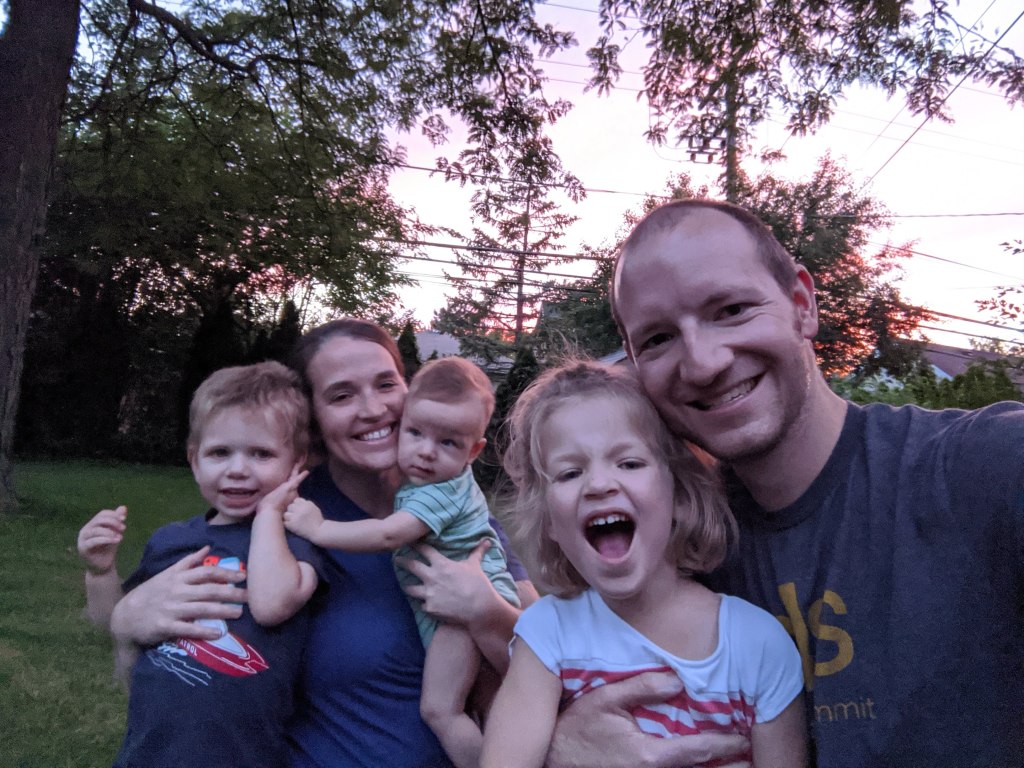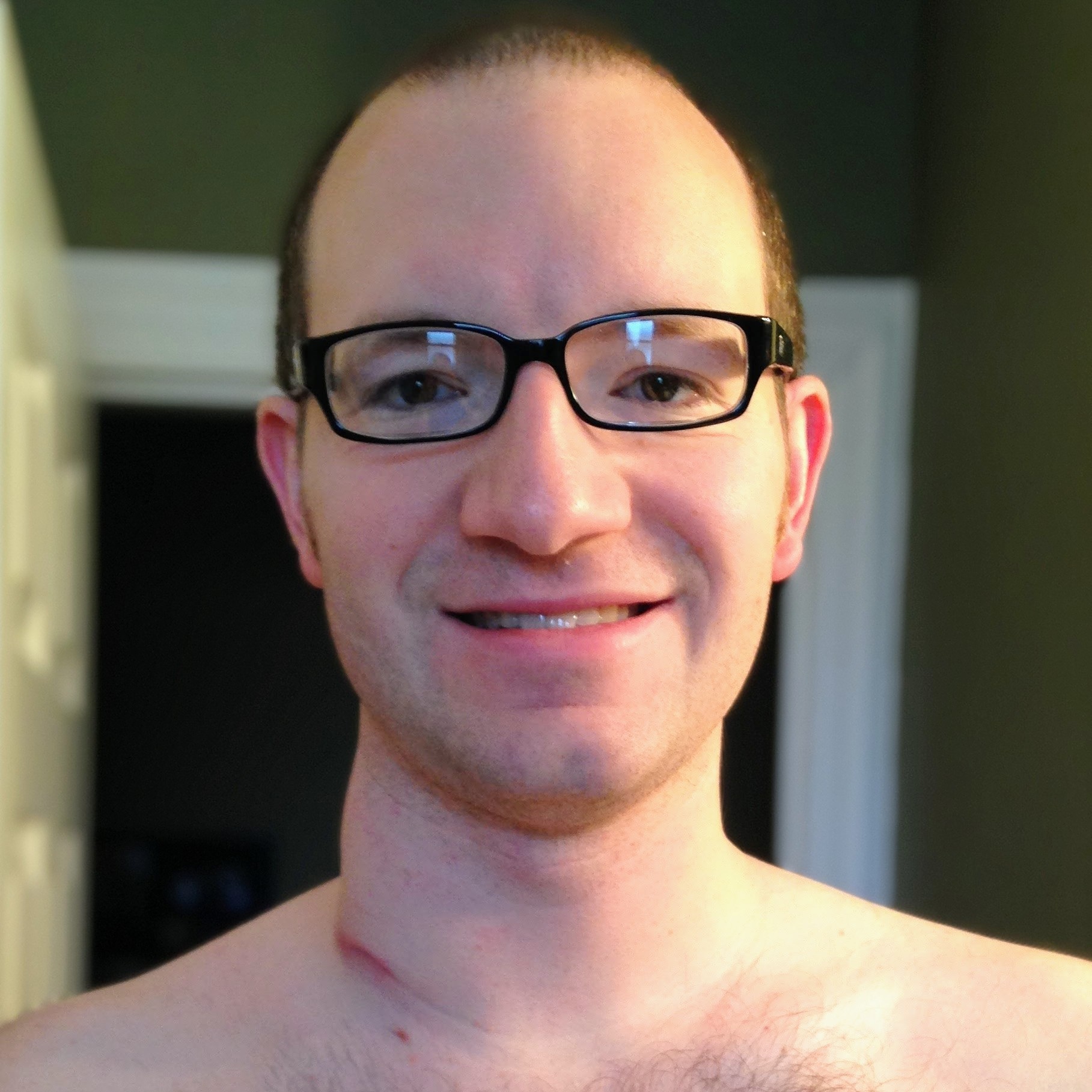
In so many ways, I was never prepared for this moment of my life, and it’s nothing like how I pictured it.
10 years ago, if you had told me that I would be writing a blog post in 2020 about being cured of cancer, I would probably have been grateful, but also slightly horrified about the future developments in store for me.
Five years ago, if you had told me that I would be celebrating my officially being cured of cancer by doing basically nothing because of a global pandemic, I would have thought you were writing some sort of dystopian fan fiction about my life.
When I finished chemo and learned that five years of remission was my new mission, I was convinced that we would celebrate my eventual cure by going out for a big steak dinner like we did when I first received the joyous “No Evidence of Disease” proclamation. We would invite family and friends to join us for the summer backyard party of the century. We would continue the celebration with a trip to Hawaii or some other exotic locale we hadn’t experienced yet.
But none of this is happening. And it doesn’t even matter…Today is a day of joy and gratitude. The wait is over. I am blessed beyond measure. Time to buy some life insurance!
In a way, it’s fitting that the reality of my “cured date” would be as surreal as everything else about the experience of being diagnosed with and treated for cancer. I’ve written elsewhere about how so much of the pandemic social distancing/shelter in place protocols are reminiscent of the lifestyle of a cancer patient. Why shouldn’t this journey toward cured end as strangely as it began?
It’s also fitting that the pandemic has allowed me to spend the majority of my time savoring the greatest blessings of my life–my wife and children–that I am only enjoying because God and modern medicine swooped in to save me from a fatal disease.
There is certainly uncertainty and stress in our day-to-day lives right now, but we are dealing mostly with mere inconveniences and have thus far been spared any real tragedy connected to the pandemic. I am fortunate to be able to work from home (just like when I had cancer!) and we are blessed to be sheltering in our comfortable home and using this time to survive, thrive, and establish the culture of our family with three children aged four and below.
The operative word in the paragraph above is spared. While not the word I embraced when I was first diagnosed or at any of the rougher moments of my treatment, I freely embrace it now, every time I hear about a new cancer patient or the tragic outcome of another cancer victim. I was spared in so many ways with a fully treatable form of lymphoma, stable financial and adaptable occupational situations that were not disrupted by cancerous medical costs, a top-rated oncologist guiding my treatment, few serious side effects, and the ability to have children after chemo–even though my doctor told me it was highly unlikely.
In fact, I was so spared in my cancer experience that the survivor guilt sometimes rides higher than it should. Rather than asking “why me?” as I did at the outset of this rollercoaster, I can find myself asking “why not me?” Why should I have been spared when others with the same disease are not so fortunate? Why should I have been diagnosed with Hodgkin’s Lymphoma instead of a deadlier form of cancer? I was somehow unaware of this statistic until I saw it on Wikipedia just now, but Hodgkin’s Lymphoma accounts for just 10 percent of all lymphoma cases. 90 percent of cases are the deadlier and more complicated to treat non-Hodgkin’s variety.
These questions are at best useless and at worst self-defeating. And yet they have persisted. Even five years after fighting cancer and being spared, the psychological trauma of facing your impending doom and embarking on a mandatory self-poisoning road to recovery will rear its ugly head in the strangest of ways.
For me, it forces existential questions like the ones posed above. But it also has sewn a disconcerting distrust between my body and my brain. Fool me once, shame on you. Give me cancer, shame on everybody. My brain feels betrayed by my body. What’s stopping that from happening again? My pre-existing hypochondriac condition was aided and abetted by my cancer experience. I have lost count of the number of times I have stress-Googled and diagnosed myself with various maladies, always checking to see if Hodgkin’s survivors are at a greater risk for these perceived new conditions that I’m so sure I’ve contracted.
The freshest–and somewhat laughable–occurrence came at my most recent visit to my oncologist. Since I have been dealing more frequently with bouts of Raynaud Syndrome (this one isn’t in my head…my fingers turn as deadly white as this), my doctor wanted to collect copious amounts of my blood and run a battery of tests for various autoimmune diseases and arthritis. In the few days between the blood draw and the follow-up appointment, I had firmly convinced myself that I would be diagnosed with lupus. You like #DownWithLumpy? You’ll love #DownWithLupus.
I was so dreading the actual test results that they took my blood pressure three times to see if it was really as high as what the machine was showing. It was. When the doctor came in, it might shock you to learn that I did not, in fact, have lupus or any other autoimmune disease. I am in good health and got to hear my oncologist’s (and my) favorite refrain once again: You’re more likely to get hit by a car than to have your cancer come back. That’s music to my ears and the rest of my lupus-free body.
But this is a celebratory post, and as I’ve reiterated in many of my cancer-versary-type posts over the years, the trauma of facing cancer has left many more positives than negatives in my life, so much so that I actually find myself grateful for the experience.
Just so this post can be even more ridiculously long, I’ll close things out with 5 positive outcomes and lessons from my cancer experience.
- Empathy is important.
I have an empathy for cancer patients, survivors and their families that can only come with firsthand experience. When someone tells you that they are undergoing chemo, for example, there’s no way for someone who hasn’t experienced that to understand what they will be going through. Even for people with far worse cancers and treatment experiences than me, I have a better glimpse of what their journey looks like. This makes me want to eradicate cancer from the earth and support cancer patients in any way that I can. One way I do so is by raising money for cancer organizations like Imerman Angels and the Anthony Rizzo Family Foundation. Click here to make a donation to my current fundraiser in celebration of my cured status. Thanks to those who have already donated or have donated to previous fundraisers over the years. I am truly grateful. - Sharing my story was vital.
This blog was a vital way for me to capture and process my emotions throughout the battle. By meticulously cataloging my experiences, I have also left a raw/emotional/hopefully humorous/complete record for future Hodgkin’s patients to discover as they Google the disease in disbelief and fear after being diagnosed. My blog traffic report frequently shows a small number of visitors viewing a large number of posts–which always means another Hodgkin’s diagnosis has gotten its wings. I could not find a comprehensive account when I was in that position myself, and I have been gratified by those who have read my story and reached out in gratitude. I hope that I have inspired others to be more open about what they’re going through to the extent that they are comfortable with that. I certainly felt more supported and loved by sharing my story. Plus, five years later, I finally found something to host a podcast about! - Cancer defines me now. I need to let it.
I will always be a cancer survivor, and that’s never going away. It will always take me longer than you to fill out a medical history form. While I take great pride in being a survivor, there’s also a perpetual awkwardness about how and when to let other people know about this essential detail of my existence. Whenever I make a new friend or coworker, this piece of my puzzle inevitably comes up, and I have to figure out how to present it in a way that doesn’t make them question my current constitution (“No! I’m cured! Don’t look at me like that!”) but also represents the monumental effect this experience had on my life. I’m still working on this. - Cancer doesn’t define me now. I don’t need to let it.
Despite all of the above, five years cancer-free sometimes feels like a lifetime. Some of my memories of that time are easily recalled, but in other ways, cancer was an out-of-body experience that feels disconnected from my current stage of life. It helped make me the person that I am today, but it’s not something that I dwell on every day, nor should it be. There should be no guilt associated with getting on with your life–even when that sometimes means that you aren’t being as grateful or compassionate as you should, or that you’re taking things for granted that you swore you never would in the chemo-ridden moments five years ago. Cancer is a touchstone that I can use to reground myself and continually recognize the blessings in my life. I’m still working on this, too. - Keep paying it forward.
Five years later, everything about this experience seems so perfectly ordained by God to direct me toward a less selfish, more grateful, more compassionate way of life. These are the greatest lessons of cancer that I never want to forget, no matter how far the experience gets in the rearview mirror. Everyone is fighting a “cancer” of some sort in their life–how can we show up for them and help them with their struggle in same way that so many people willingly showed up for me? It’s OK to ask for help when you need it, it’s OK to accept help when you need it, and it’s absolutely essential to offer help when you can give it. And that can be as simple as a text message, a phone call or a funny meme shared on Facebook. When the stakes are high, the acts of kindness can be simple, and the effects can still be profound. I’m working on this one most of all.
Thank you for supporting me over the last five years. I am so grateful to have reached this milestone and for the people with whom I get to share my wonderful life.
I’M DONE WITH LUMPY!




